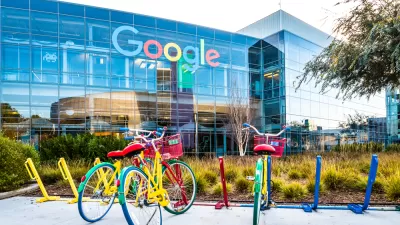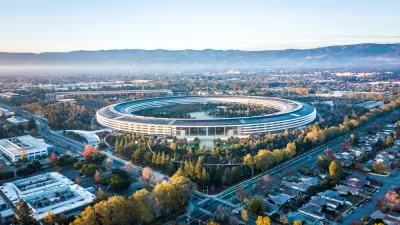Writing in Time, Anita Hamilton examines the rise of peer-to-peer car sharing networks, and why, exactly, the world's largest car company would support such a system.
For starters, just to clarify, peer-to-peer car sharing differs from traditional car sharing services such as Zipcar in that it allows people to rent out their own vehicles to others at rates set by the car owners themselves, and would theoretically siphon people away from buying new autos.
Hence the question about GM's recent funding for RelayRides, one of a handful of peer-to-peer car sharing services in the U.S. According to Hamilton, "what matters most is that more people are driving around in GM vehicles, whether they own them or not."
The primary obstacles for peer-to-peer start-ups such as RelayRides aren't getting backing by institutional investors (which include Google Ventures, August Capital, and now General Motors), it's much more psychological.
As Hamilton writes, "The big catch, of course, is whether Americans are really comfortable renting their personal cars to strangers. 'Some people by nature don't want to share anything,' concedes Bob Tiderington, GM's Manager of Business Initiatives, the unit that partnered directly with RelayRides. But the rise of collaborative consumption, in which people rent or lend everything from a hammer (at borrowtools.org) to a cocktail dress (at renttherunway.com), suggests that enough people are comfortable with the idea to make the business model work."
FULL STORY: Will Car-Sharing Networks Change the Way We Travel?

Alabama: Trump Terminates Settlements for Black Communities Harmed By Raw Sewage
Trump deemed the landmark civil rights agreement “illegal DEI and environmental justice policy.”

Study: Maui’s Plan to Convert Vacation Rentals to Long-Term Housing Could Cause Nearly $1 Billion Economic Loss
The plan would reduce visitor accommodation by 25% resulting in 1,900 jobs lost.

Planetizen Federal Action Tracker
A weekly monitor of how Trump’s orders and actions are impacting planners and planning in America.

Wind Energy on the Rise Despite Federal Policy Reversal
The Trump administration is revoking federal support for renewable energy, but demand for new projects continues unabated.

Passengers Flock to Caltrain After Electrification
The new electric trains are running faster and more reliably, leading to strong ridership growth on the Bay Area rail system.

Texas Churches Rally Behind ‘Yes in God’s Back Yard’ Legislation
Religious leaders want the state to reduce zoning regulations to streamline leasing church-owned land to housing developers.
Urban Design for Planners 1: Software Tools
This six-course series explores essential urban design concepts using open source software and equips planners with the tools they need to participate fully in the urban design process.
Planning for Universal Design
Learn the tools for implementing Universal Design in planning regulations.
Caltrans
Smith Gee Studio
Institute for Housing and Urban Development Studies (IHS)
City of Grandview
Harvard GSD Executive Education
Toledo-Lucas County Plan Commissions
Salt Lake City
NYU Wagner Graduate School of Public Service





























